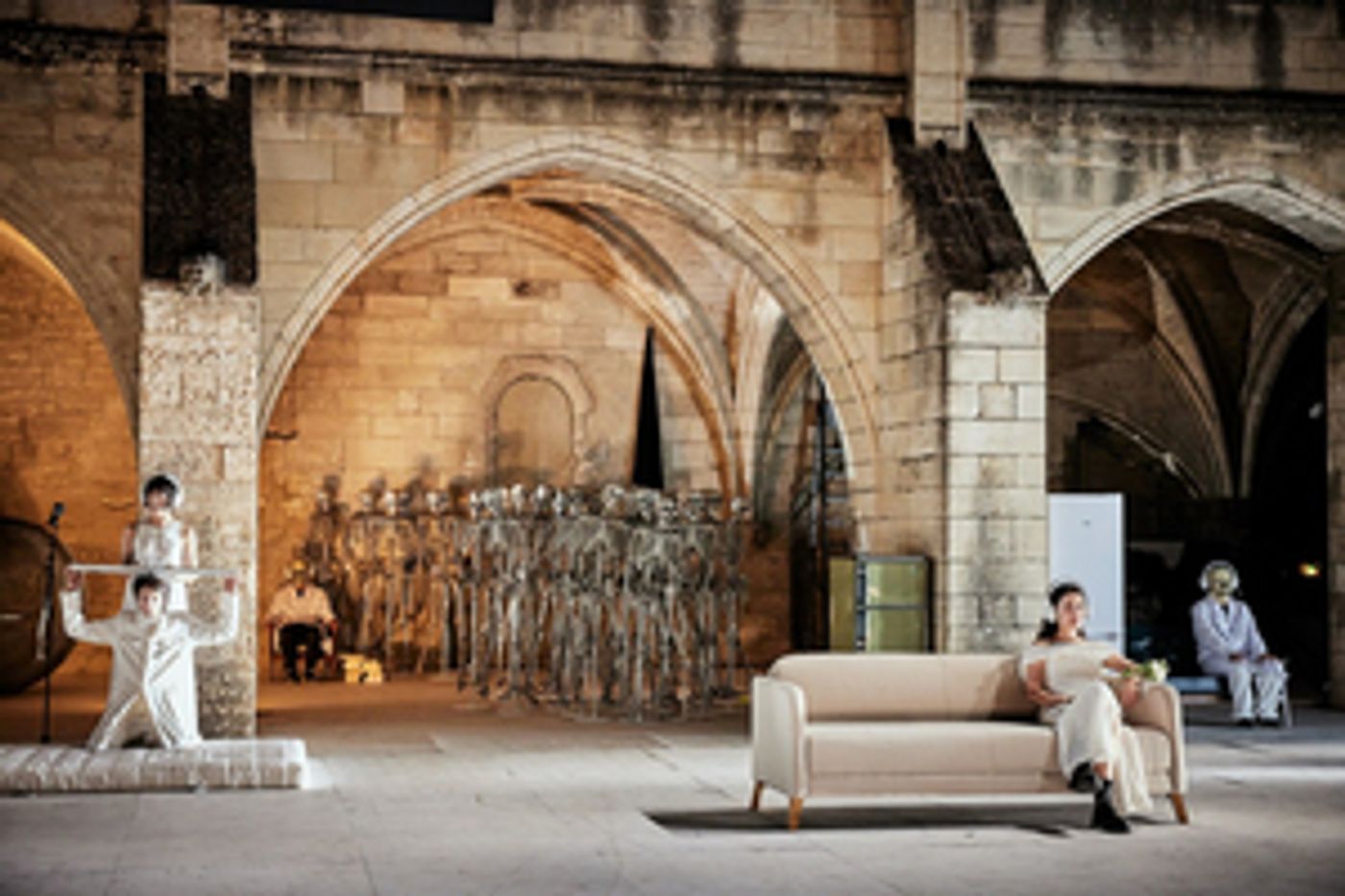Review: The Festival d'Avignon Presents LE SEPTIÈME JOUR By Meng Jinghui
Adapted from the novel by Yu Hua of the same name, the piece is split between seven days.

Eulogies, obituaries, and post-mortems. There are many ways people digest a life ended. It's a daunting task to try to encapsulate someone else's life. The task becomes even more difficult when the existence you're attempting to reckon with is your own. Meng Jinghui's Le Septième Jour, now in performance at the Cloître des Carmes, shows a recently deceased man grappling with his life.
Adapted from the novel by Yu Hua of the same name, the piece is split between seven days. On the first day Yang Fei wakes up to discover that he's missed his cremation appointment. Over the course of the following days we see his life. There is his wife, his father, his neighbors, and his friends. On day six we are introduced to Oedipus and the Sphinx. I'll concede that this doesn't quite register. On the seventh day the actors sit at a table and eat noodles.
Le Septième Jour is a fairly unconvincing mediation on death. Despite hoards of skeletons that fill out the Cloître des Carmes, I never got the sense that mortality was being grappled with. For Yang Fei, it was one of a line of inconveniences that have shaped his life. Other set elements, as staged by Zhang Wu, similarly baffled. Large posters of Marilyn Monroe and Che Guevara lean on the upstage wall. A large dinosaur sculpture distracts audience attention and is never referenced. Large stone spheres similarly exist under the cloister arches. There is perhaps some commentary here on eternity, but with so much to untangle in the plot proper, I left them behind.
Lighting by Wang Qi is strong. Effects like detachable florescent lighting in a refrigerator work as good theatre, if they still lack in coherent drama. Music by Hua Shan and Wang Chuang, performed live off-stage, gives the proceedings a rock atmosphere. Though with Zhang Xinnan's cloister shaking sound design, no atmospheric range was ever attempted. Additionally, technical issues and obscuring smoke made the surtitles difficult to follow.
These complaints should be qualified by admitting that comedy doesn't translate easily. Le Septième Jour isn't a comedy, but it attempts at wit and broad physical comedy. That these moments didn't register is probably due more to my social background than anything. Most Chinese audience members laughed with the work. At one point two women on my row fell into fits and worked hard to contain themselves, trying to not be the only two people in the theatre in stitches. I'm not sure that such comedy would've rescued the piece for me, but it would have made it easier to contend with.
The saving grace for Le Septième Jour is its cast. In particular Chen Minghao as Yang Fei delivers the work with Shakespearian force. He presents a victim and a perpetrator, someone apathetic and apprehensive about his death. He moves between extravagance in affect and a cool deadpan candor. Other cast members work off of him and he gives them plenty to work with. It's simply unfortunate that such intensity and talent didn't register much thematic depth.
Photo Credit: Christophe Raynaud de Lage
Reader Reviews
Videos


